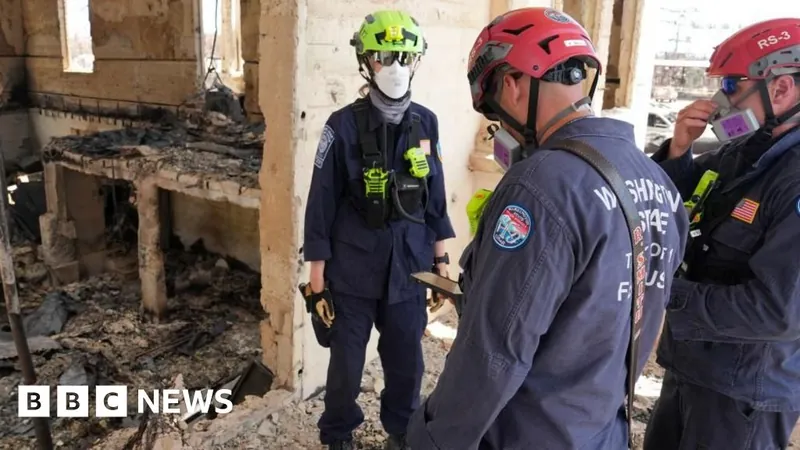
Breakthrough Research: UC Team Secures $7M to Revolutionize Cystic Fibrosis Treatment with Probiotics!
2024-10-14
Author: Michael
Groundbreaking Research at UC
In a groundbreaking development, researchers at the University of California (UC) have been awarded a staggering $7 million grant from the Advanced Research Projects Agency for Health (ARPA-H), a division of the National Institutes of Health. This funding is aimed at exploring the use of probiotics as a potential treatment for lung infections in individuals battling cystic fibrosis (CF).
The PROTECT Project
The ambitious project, aptly named PROTECT (Pro/Prebiotic Regulation for Optimized Treatment and Eradication of Clinical Threats), seeks to combat lung infections by cultivating a community of beneficial microorganisms that can outcompete harmful bacteria. Probiotics, which consist of live bacteria and yeasts, have shown promise in boosting immunity and fighting off detrimental microbes.
Transformative Potential of Probiotics
Dr. Karsten Zengler, a professor at UC San Diego and co-principal investigator of the project, emphasized the transformative potential of this research: “If successful, this technology will revolutionize how we approach microbe-related illnesses, particularly for individuals suffering from cystic fibrosis.”
Cystic Fibrosis Challenges
Cystic fibrosis is characterized by thick, sticky mucus accumulation in the lungs, leading to chronic inflammatory conditions and making patients susceptible to severe infections. One of the primary culprits of these infections is *Pseudomonas aeruginosa*, an environmental bacterium that significantly impacts lung function and exacerbates symptoms in CF patients.
Addressing Antibiotic Resistance
Currently, these infections are mainly addressed through antibiotics, but the growing problem of antibiotic resistance highlights the urgent need for alternative treatments. The PROTECT project hopes to fill this gap by harnessing the power of probiotics to combat infections without relying solely on conventional antibiotics.
Research Methodology
The research will delve into the lung microbiome of healthy individuals to identify beneficial bacteria capable of breaking down substances that *Pseudomonas* relies on to thrive. The team will then conduct genetic and functional analyses to understand how these microbes interact, leading to the development of effective probiotic formulations.
Future Prospects and Broader Impacts
These formulations will be rigorously tested in CF mouse models to ensure their efficacy before progressing to clinical trials. Co-led by Dr. Adam P. Arkin, a bioengineering professor at UC Berkeley, the project is expected to run for four years and is set to explore not just cystic fibrosis, but potentially other mucus-related diseases such as bronchiectasis.
Conclusion
The implications of this research extend beyond CF, as successful outcomes could pave the way for novel treatments for various microbial infections, ultimately enhancing patient care and quality of life.
Stay Tuned!
Stay tuned as this exciting endeavor unfolds—could this be the future of treating cystic fibrosis and revolutionizing how we tackle infectious diseases?









 Brasil (PT)
Brasil (PT)
 Canada (EN)
Canada (EN)
 Chile (ES)
Chile (ES)
 España (ES)
España (ES)
 France (FR)
France (FR)
 Hong Kong (EN)
Hong Kong (EN)
 Italia (IT)
Italia (IT)
 日本 (JA)
日本 (JA)
 Magyarország (HU)
Magyarország (HU)
 Norge (NO)
Norge (NO)
 Polska (PL)
Polska (PL)
 Schweiz (DE)
Schweiz (DE)
 Singapore (EN)
Singapore (EN)
 Sverige (SV)
Sverige (SV)
 Suomi (FI)
Suomi (FI)
 Türkiye (TR)
Türkiye (TR)